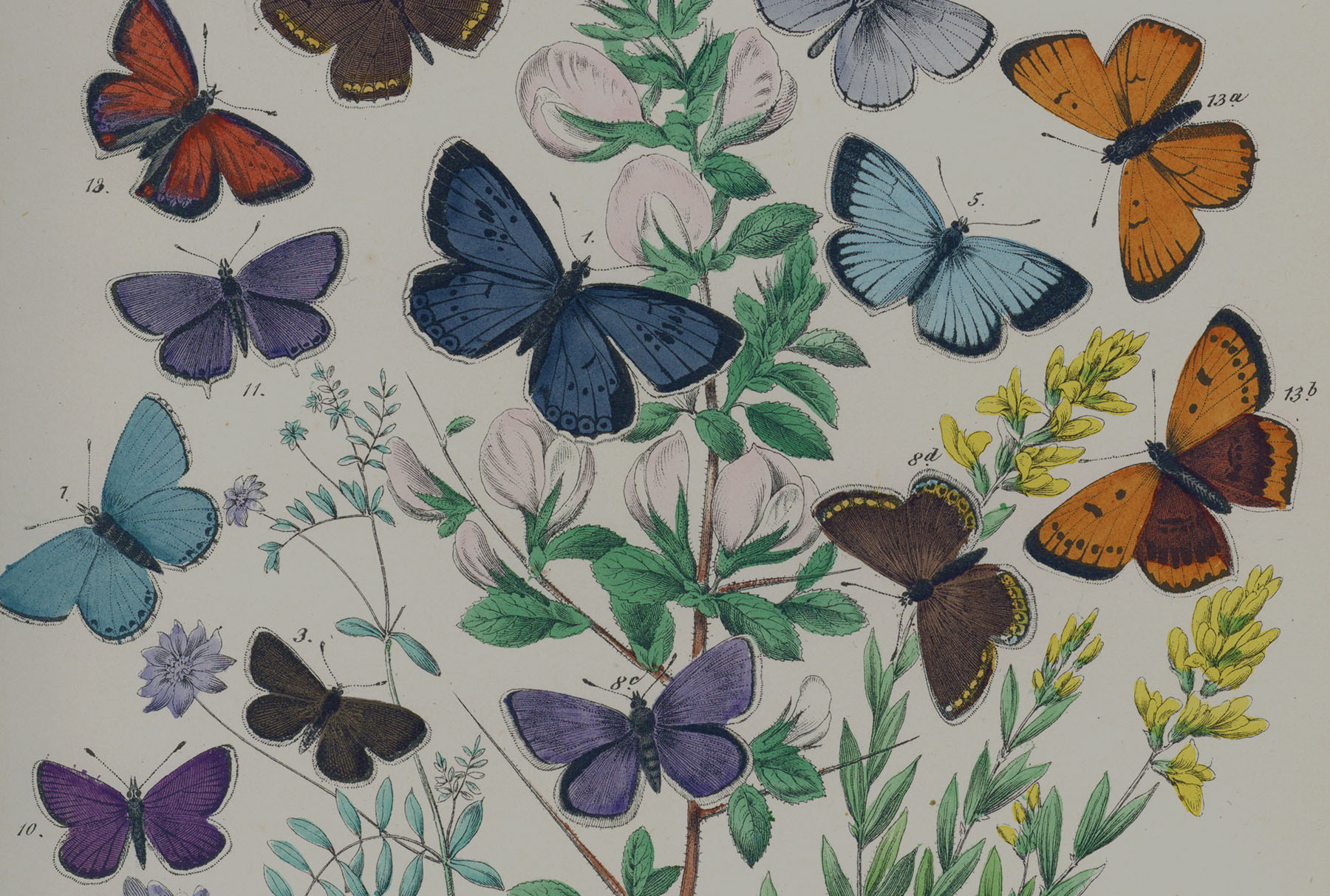Peter Bennet
Collected Voices
Peter Bennet was born in Staffordshire in 1942. He went as a scholarship boy to King's School Macclesfield, and then to Manchester College of Art and Design, where he was influenced by Norman Adams and his wife, the poet Anna Adams. He taught in secondary and further education, including work with redundant steelworkers following the closure of Consett Steel Works, and spent sixteen years as Tutor Organiser for Northumberland with the Workers' Educational Association. He gave up painting for writing in 1980 and did a part-time MA at Newcastle University, including a study of W.S.Graham.
Peter Bennet has published collections with Bloodaxe Books and Flambard Press including Border: New & Selected Poems (2013), Goblin Lawn (2005), a Poetry Book Society Recommendation, The Glass Swarm (2008), a Poetry Book Society Choice which was shortlisted for the T.S. Eliot Prize, and A Game of Bear (2011). He has received major awards from New Writing North and Arts Council England and been a prizewinner in the National and the Arvon International Poetry Competitions, and in the Basil Bunting Awards.
Activities in the period after publication of his first collection
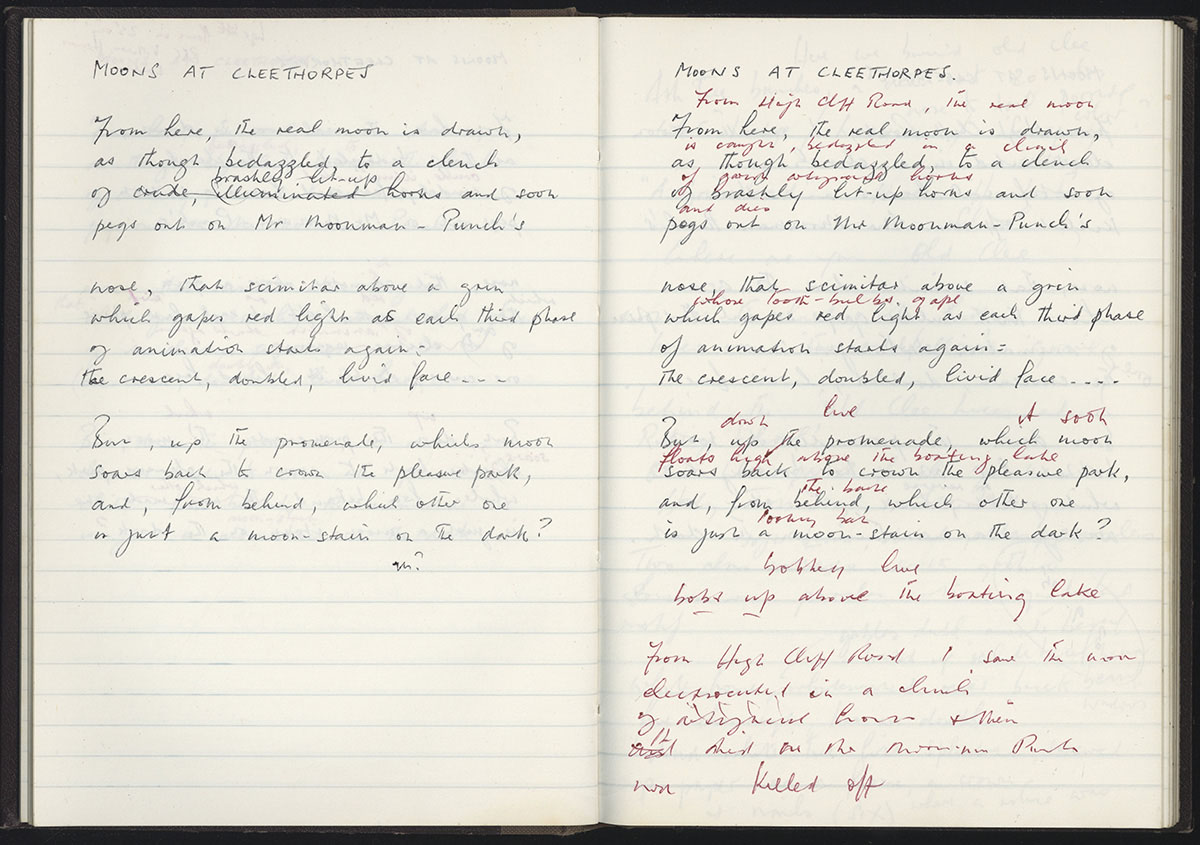
Describing the writing process
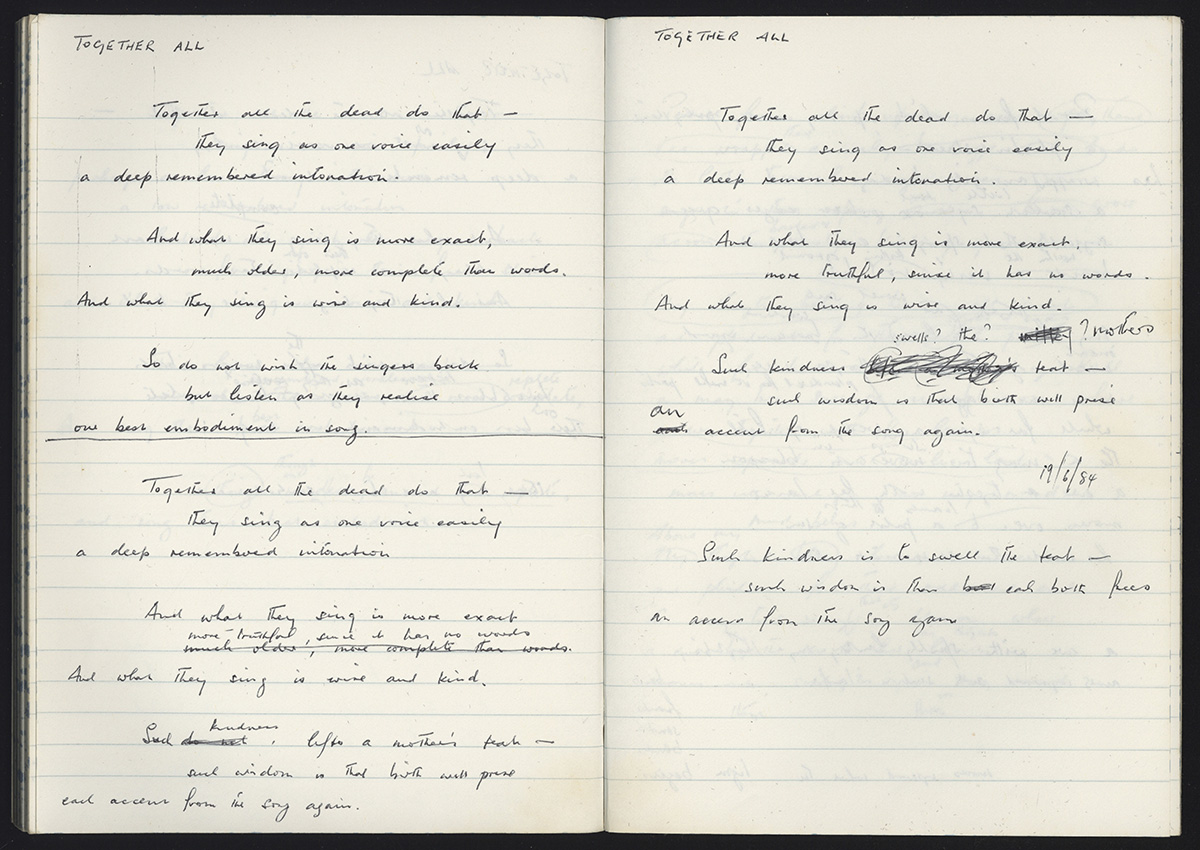
Discussing his poems and their speakers
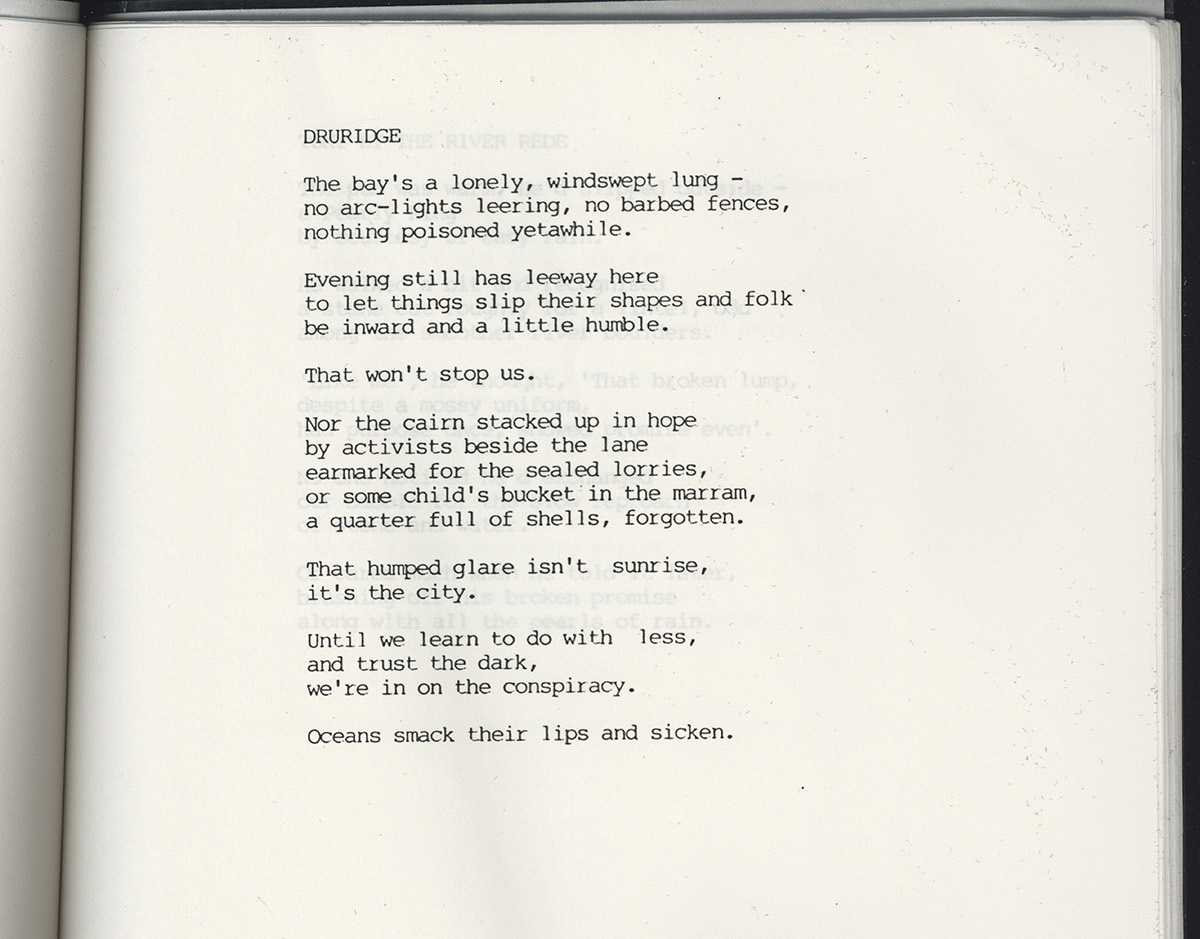
Experience of publishing first poetry collection
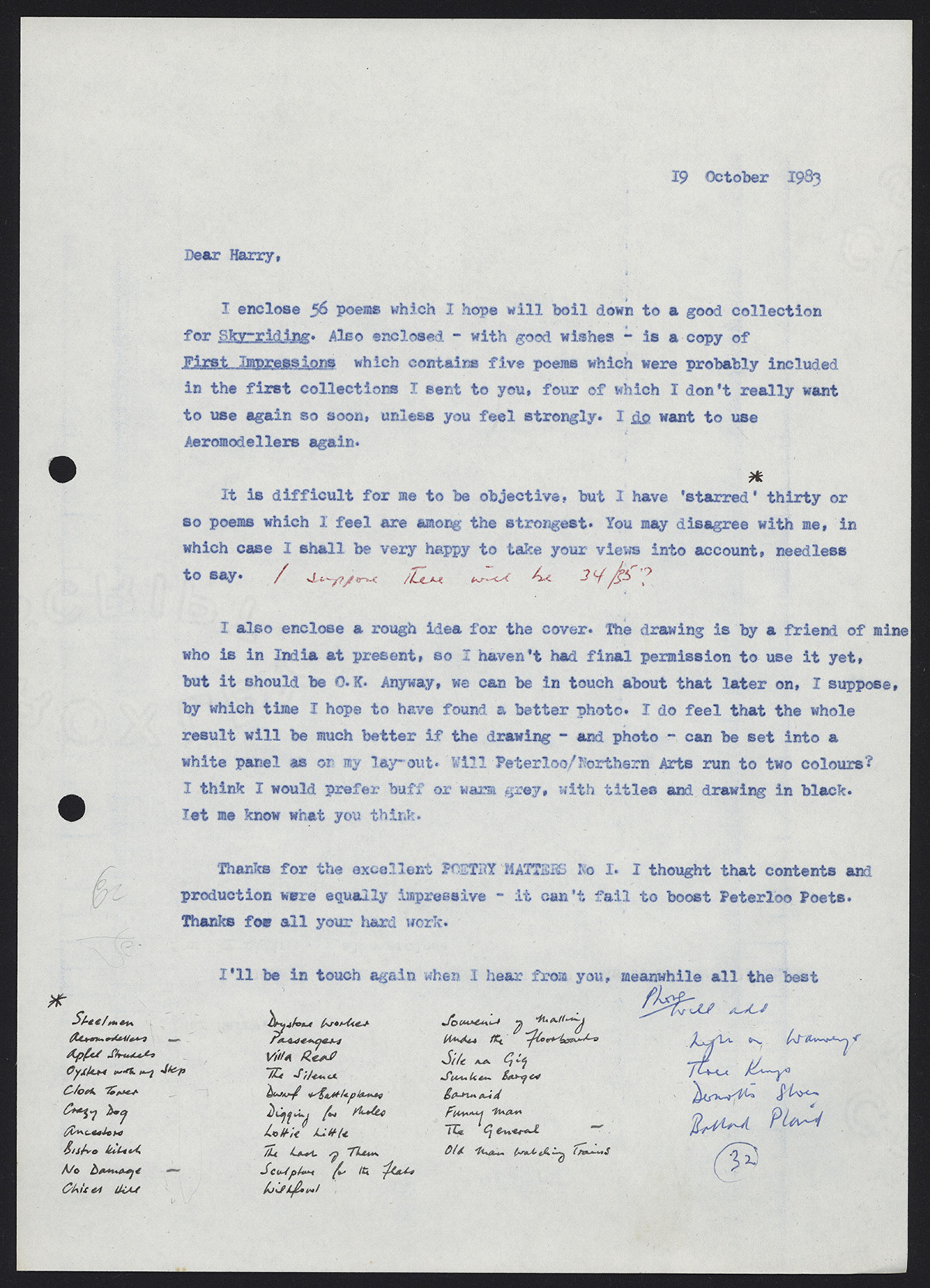
Feelings about being a recipient of Arts Council and New Writing North awards
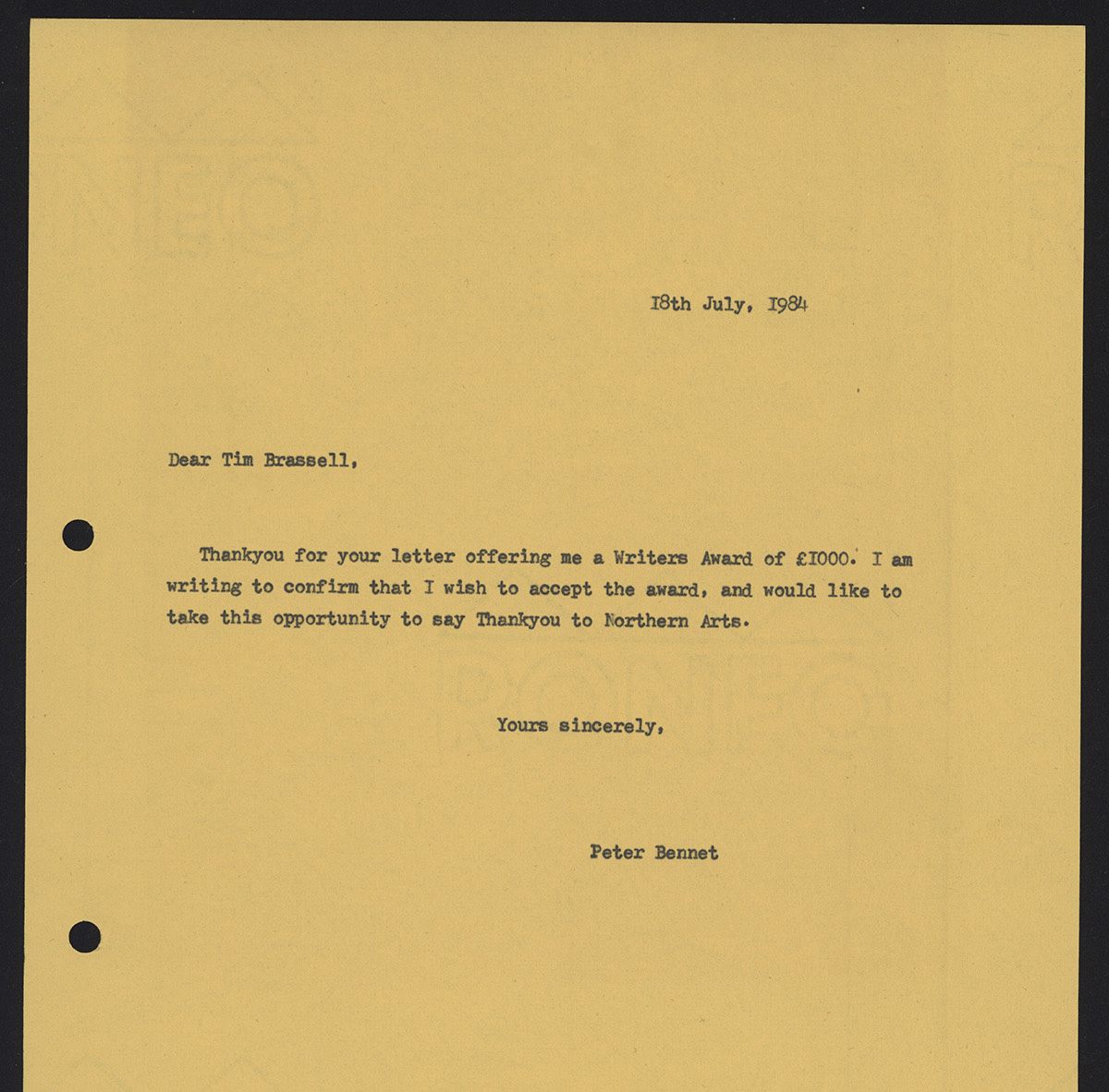
Hopes for the archive and his notebooks
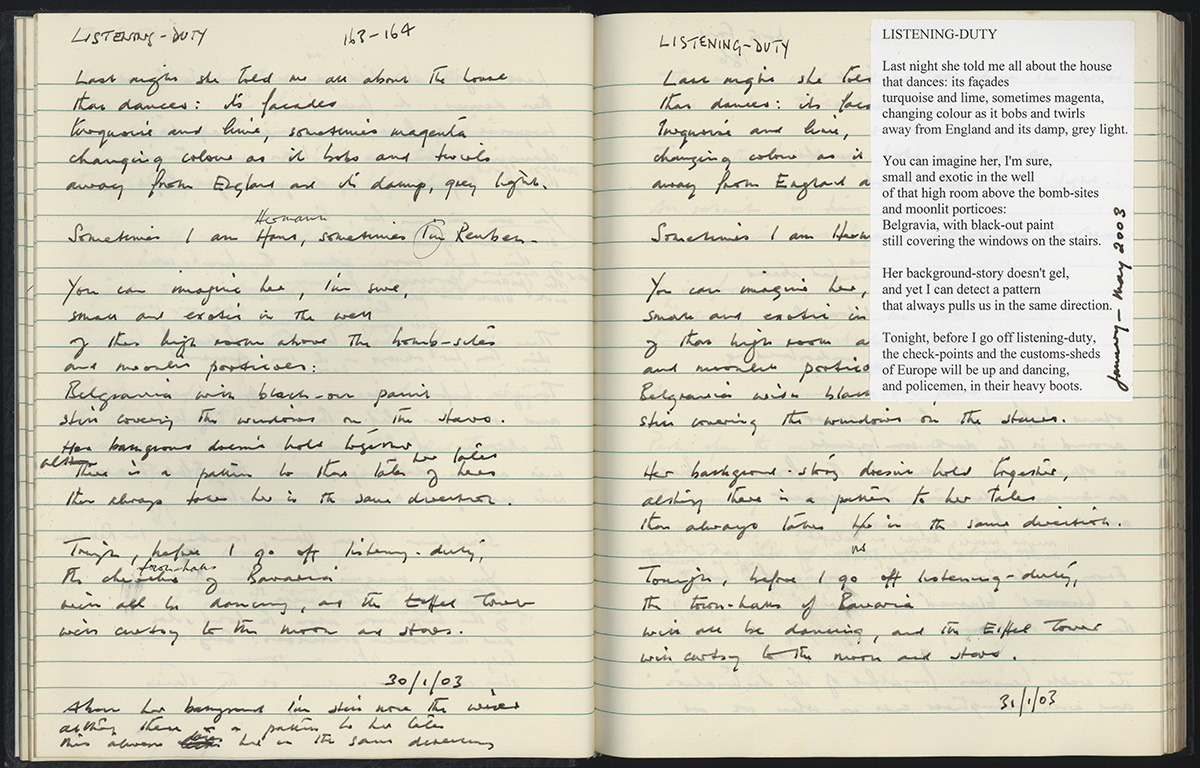
On poetry communities and the Northern Poetry Workshop
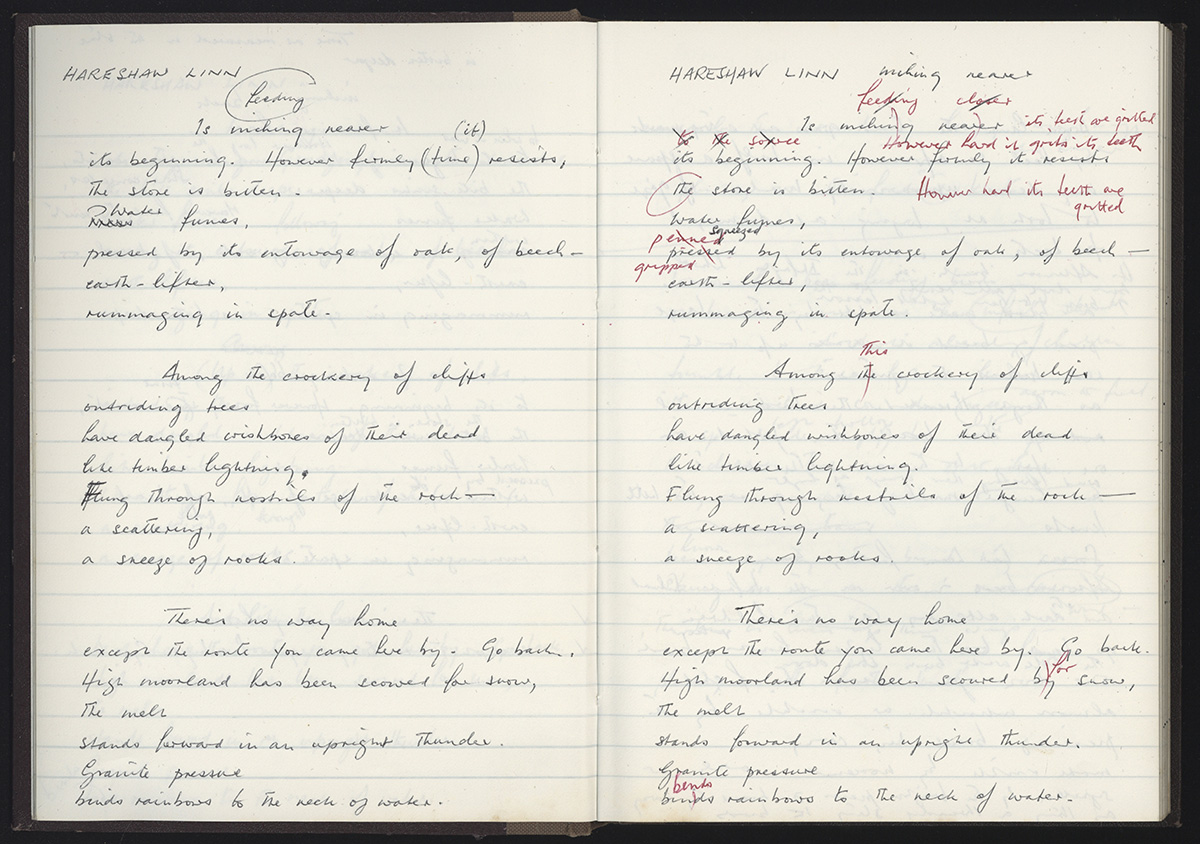
On teaching steelworkers and the beginnings of his writing poetry
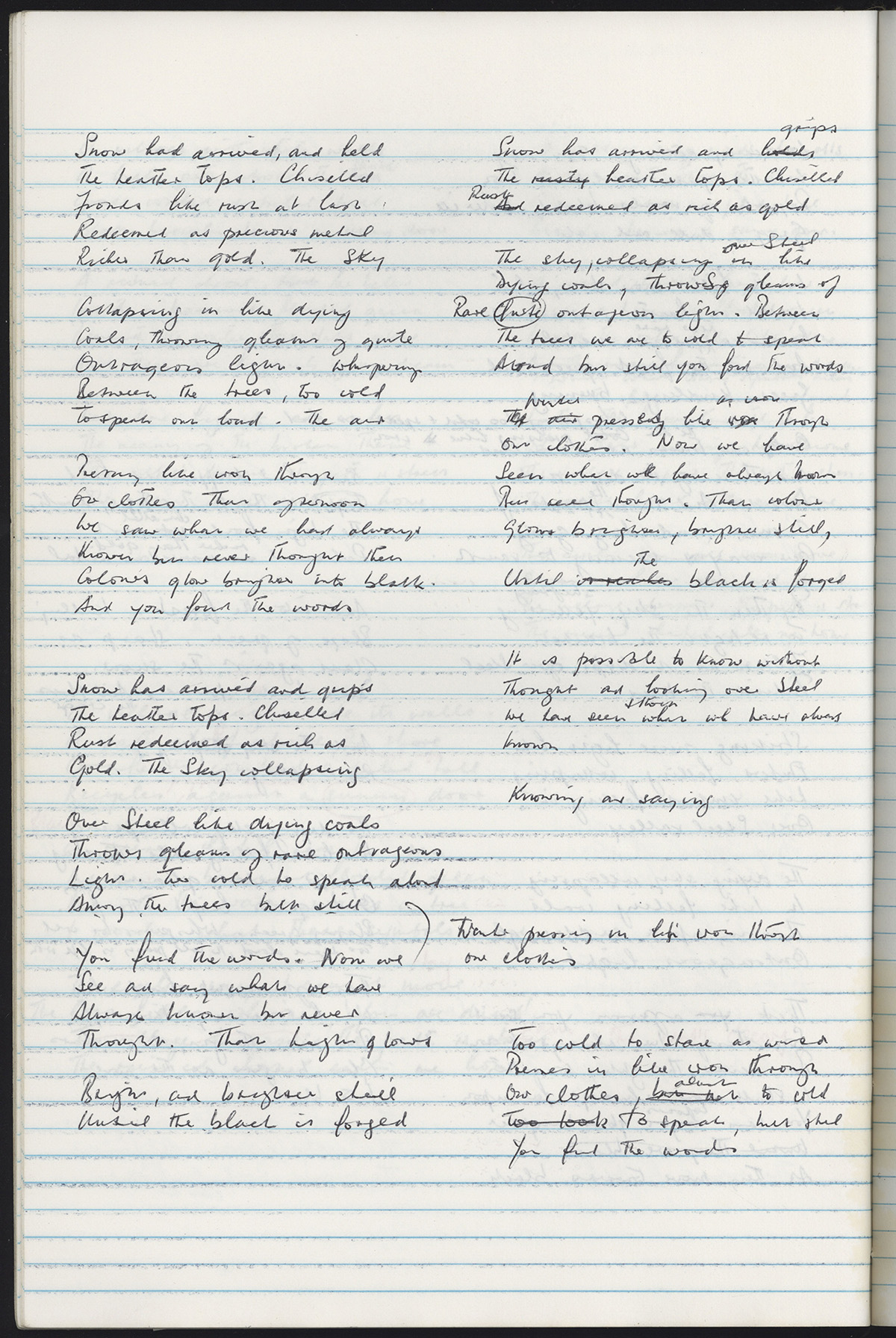
On the relationship between written and performative forms of poetry
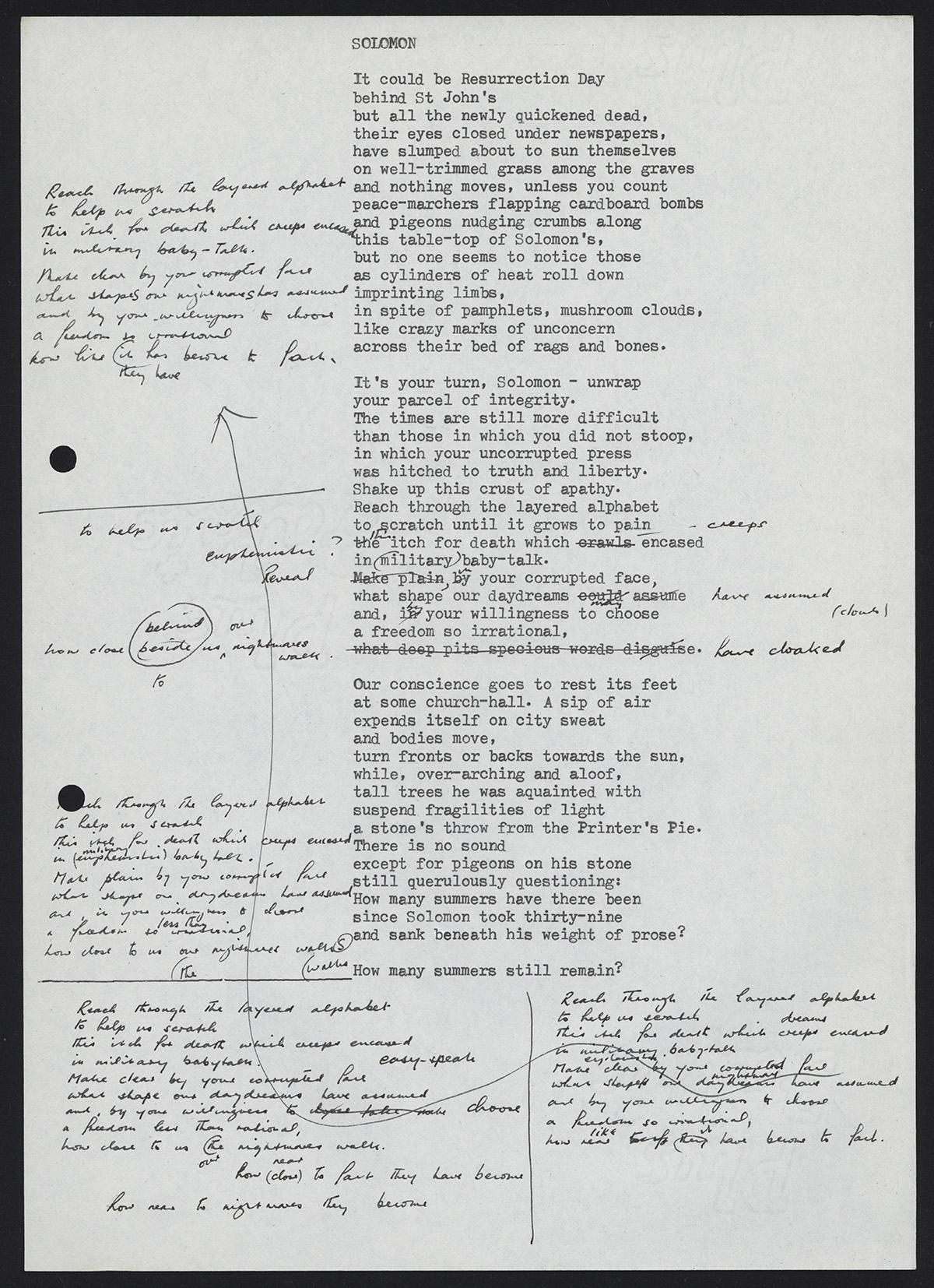
Reflections on Morden Tower and the Newcastle poetry scene
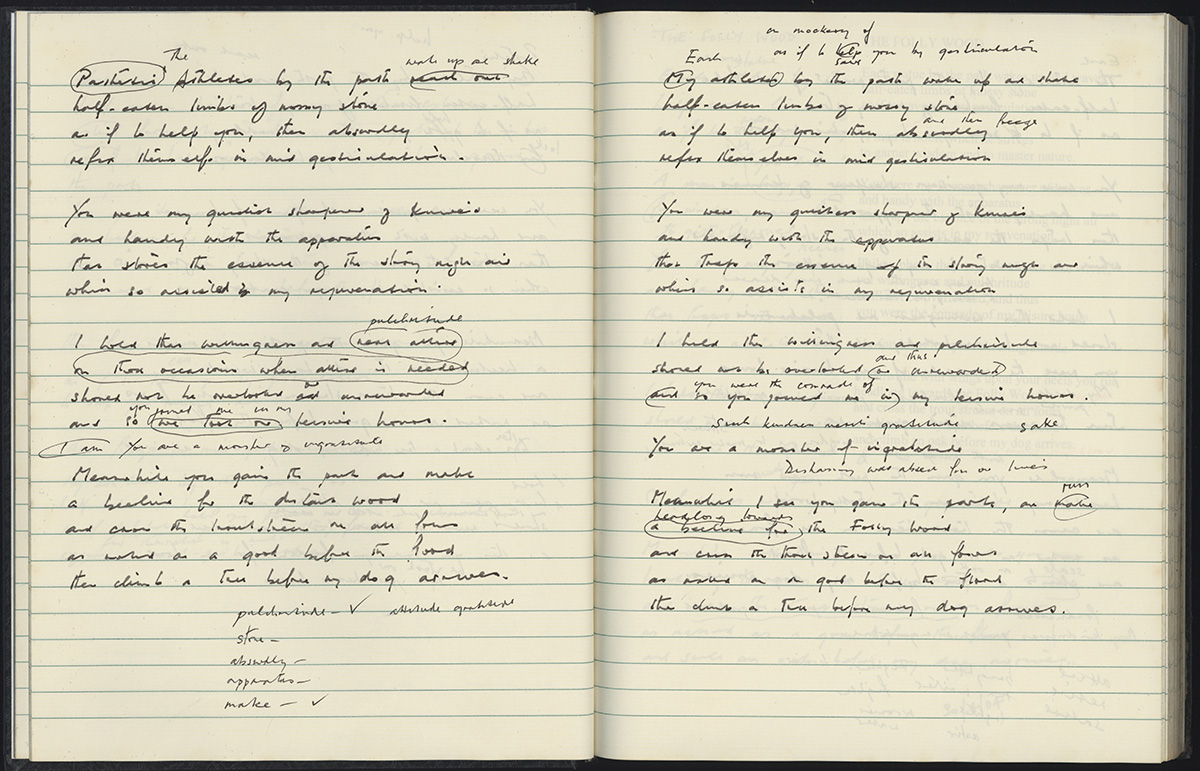
Reflections on the kindness and support of Flambard Press
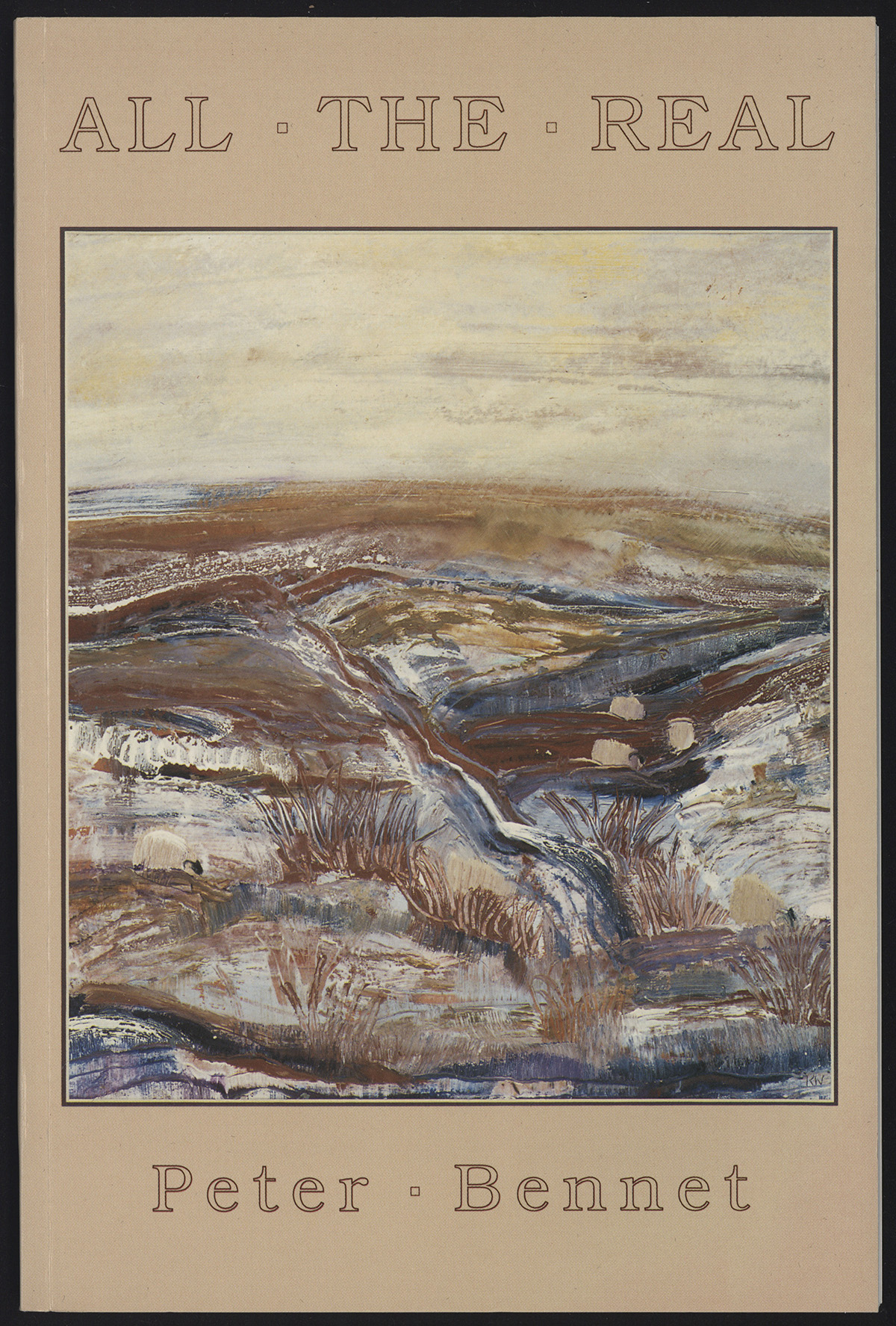
Listen to the full interview
Read the text summary
00:00: Peter Bennet begins by reflecting on how he started creative work as a painter. He studied at Manchester College of Art from which he went straight into teaching, despite his ambition to be a painter. He eventually moved to Newcastle to teach in secondary schools, which he did for fourteen years before deciding to look for part-time work in the hope of enabling him to paint as he wanted. He describes one of his first jobs at Consett after the closure of the steelworks; he was recruited as part of a group to teach basic education to steel workers. He reflects on how most did not need this education but had to have basic English and Maths. He describes how both the students and teachers were bored with covering the basics; Bennet was employed to teach literature and spent time reading poetry and putting on plays. This process started him writing rather than painting, which he reflects as his true vocation. He states that his first book was published when he was in his early forties, which he describes as being a late starter with poetry.
02:40: Bennet describes how he began to write by writing poetry, stating that he never had any particular interest in writing anything else.
03:02: The first poetry collection Bennet had published was Sky-riding, published by Peterloo Poets in 1984. He also had pamphlets published and a residency at Grimsby Library after his first publication, the only time he has undertaken such work, and which resulted in the publication of another pamphlet. Afterwards, he decided to undertake a Masters degree in Modern English Literature at Newcastle University.
04:02: Reflecting on the experience of publishing, Bennet explains that, for him, there were no drawbacks to publishing his first collection. He suggests that he found it more difficult with subsequent collections due to the worry about whether people were reading his work, whether it reached the people he wanted to read it, and particularly what people thought. He explains it as a process of growing more inhibited, and likens it to his experience of poetry readings. Bennet describes how when he first started, he had no nerves at poetry readings; at one stage, Bennet was involved in organising the readings at the Morden Tower in Newcastle in the late 1980s, and read his own work with no inhibitions at all. He explains that as his work as a poet has continued, the more nervous he has become about readings.
05:39: Bennet describes his experiences of Morden Tower, an important part of the Newcastle poetry scene, and particularly the people. He explains how there was an extremely lively poetry scene at the time and describes how the poetry scene was also a much more grass-roots movement than today, explaining that there was money from the Arts Council and applications could be made for funding for poets to come and read. Reflecting on the programmes at Morden Tower, he describes how many prestigious and well-known poets read there and how the Tower was acoustically perfect for reading poetry due to its shape as a round, stone room.
07:01: Thinking over his involvement with the community at Morden Tower, Bennet states that he no longer feels part of a poetry community in the same sense as then. He describes himself as less sociable now, but is part of a poetry group called ‘Northern Poetry Workshop’ and has been for several years. He describes his fellow members in the Workshop as ‘colleagues in poetry’. The Workshop is organised by fellow poet, Sean O’Brien, and Bennet indicates it is very valuable to him – an opportunity to meet as he is no longer so keen to embark on continuous poetry readings as he once was.
08:09: Discussing his publishers, Bennet describes how he has been published by both Bloodaxe Books and Flambard Press. He states that Flambard was a tremendous support to him – Flambard published three collections by Bennet, and a long sequence titled ‘The Long Pack’. He describes both Margaret and Peter Lewis [the founders of Flambard Press] as very encouraging, able and helpful editors. Bennet views it a shame that Flambard ceases to exist, due to the loss of their Arts Council funding. He feels himself fortunate to have been published by Bloodaxe after Flambard’s closure.
09:12: Despite being published by local publishers, Bennet does not feel that having a strong relationship to local poetry publishers is something that is important to him. He explains that he knew Margaret and Peter Lewis before they set up Flambard Press, and was delighted when they published his work after a ten-year gap where he hadn’t published anything. He expresses that his hope at the time was for Bloodaxe Books to publish his work, and would have wished this even if they had not been based locally.
10:02: Reflecting on the awards he has received from New Writing North and Arts Council England, Bennet describes it as a tremendous experience that enabled him to travel and follow up on certain leads. He describes trips to South Africa and Austria in order to follow a particular writer whose work appealed to him; he describes the awards as giving him the opportunity to travel when he wouldn’t have been able to afford trips. Bennet explains how such awards are also an affirmation – writing is a lonely business whereby, until a new collection is published, there is little affirmation except from such awards as he has received. He sees it as recognition that people have looked at the work and thought hard about it.
11:51: Bennet’s archive largely contains notebooks; he reflects on his writing process and the importance of the notebooks by stating that his process has not really changed, and relates this to his background in painting. He explains that he never starts with an idea, but with words on the page instead, which are often random. Phrases will come from overheard conversations, or read in a book, with Bennet describing the process as haphazard and confused to begin with. He sees it as similar to painting in a non-figurative way, whereby each mark on the canvas directs where the next will go. He finds that words are different due to their meaning, but that his phrases start as a jumble before working themselves into an order. He will occasionally look at other information that feeds into a poem but he never starts with an idea or a motive apart from in a handful of cases.
14:10: Bennet does not feel that there are any themes to which he is repeatedly drawn in his poetry, and feels that it would take someone else reading his work to identify them if there were. He finds instead that his poems tend to be about different things, and he is fond of mixing up truth with complete fiction. He analyses his use of different speakers in his poems, suggesting that they are like Browning’s dramatic monologues; Bennet finds his own poems dramatic in the sense that they are theatrical happenings in a small, quiet way. He feels that his poems bring a sense of a person speaking and the incomplete story behind that person; often, he works with a particular voice that generates a particular atmosphere and leaves behind an incomplete story that he hopes stays in the reader’s mind and that they feel compelled to complete themselves.
16:46: For Bennet, the relationship between the written form of the poem and the performance of it is quite close in his own work; he does not feel there are any surprises when he reads one of his poems. Ideally, he would like his audience to have a copy of the poem in front of them when it is performed in order to have both experiences. He enjoys reading his poetry, but feels he does not have a spontaneous performance approach. Bennet suggests that poetry in general needs to be read aloud.
18:14: Bennet’s hopes for the future use of his archive centre on his work remaining of interest to people. After his next collection of poetry, due to be published in November 2018, he wishes to step aside from writing short poems in order to write a longer work, potentially book-length. He hopes that if his work remains of interest, that there is someone who is sufficiently interested to research the background to his poems. Most of the archive consists of his collection of notebooks; anybody who is interested can start with the initial experiments, where Bennet sees himself as trying to create meaning, and identify various stages in his work and when the poem finally starts to take shape. Bennet expresses a certain amount of disbelief at the thought that his poems could be of scholarly interest, but does consider that his archive could be of interest in demonstrating the activities of a particular person in the late twentieth and early twenty-first century.
21:11: Closing the interview and discussing influence on his work, Bennet finds that there are many poets that he admires very much but he does not consider himself to write like anyone else, and therefore as not having been particularly influenced by any specific poets or their respective archives.
